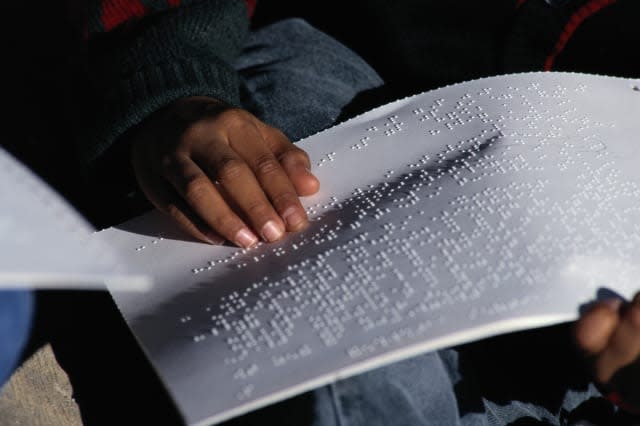How disability discrimination can hamper a job-hunt

With cuts to disability benefits said to be on the horizon, there's more pressure on disabled people to find a job than ever before. But this is easier said than done.
As many as 85% of disabled people say their condition has affected their job-hunt, with more than half saying that barriers emerge as early as the application stage.
The Recruitment Industry Disability Initiative (RIDI), Diversityjobs.co.uk and Evenbreak surveyed over 300 disabled jobseekers with a variety of conditions including mobility impairment, visual impairment, learning disability and mental health conditions.
And, they found, the shutters are often up from the start.
"When an agency contacts me asking for my phone number after reading my CV, I explain to them that I cannot use the telephone and suggest corresponding via emails," says one person. "Silence. No more response."
And the problems continue for those who make it as far as the interview stage, with 57% of respondents saying that meeting a potential employer in person damaged their chances of finding a job.
"Interview with a major employer, and the first comment was: 'you know you only got an interview because you ticked a disability box'," said one.
Another claimed that, as soon as employers saw a hearing dog, they lost interest in the candidate.
"The application stage in particular can be a barrier for jobseekers who do not fit all the criteria deemed 'essential' – such as holding a full UK driving licence," says Morgan Lobb, CEO and founder of DiversityJobs.co.uk.
But, the survey found, there are challenges throughout the recruitment process, with respondents citing telephone interviews (23%), online assessments (32%), travel to an interview (29%), presentations (15%), psychometric testing (11%), role-play (15%), and group exercises (18%) as impacting their job hunt.
"Many recruiters and employers – most often unintentionally - are still using outdated processes, which are a disadvantage to those with both physical and non-visible impairments," says Kate Headley, director of consulting at The Clear Company and spokesperson for RIDI.
"In order to tap into disabled talent pools, employers and recruiters must get back to basics and review each stage of the recruitment process - from application stage to on-boarding - to ensure that they are accessible and equitable for all. If they fail to do so, the best person for the job may never even apply for the role – let alone make it to interview."
So what are your rights?
Under the Equality Act 2010, employers must not treat job applicants with disabilities less favourably than others and must make 'reasonable adjustments' to make sure they aren't put at a disadvantage when applying for jobs. This could mean supplying a sign language interpreter at interview, for example, and there are funds to help employers with this.
Candidates aren't obliged to reveal a disability when applying for a job - although for many hiding one isn't an option. And most disabled jobseekers agree that it's best to be upfront. Hiding a disability can make for an awkward situation when the truth does emerge, and can make it difficult to make a complaint about discrimination later on.
Either way, employers are only allowed to ask about disabilities in certain circumstances. These include checking whether you're able to carry out an essential part of the job - reasonable adjustments can sometimes only achieve so much - or trying to improve the number of disabled people in the workplace.
So what if you think you've been discriminated against?
Of course, it's easy to point to the laws on discrimination; rather harder to go through the whole process of a formal complaint, especially when there may be little concrete evidence of your claims.
But it does happen. Three years, ago, Eli Pierre, who was born with part of one arm missing, sued Starbucks in the US for discrimination during a job interview.
A hiring manager told him: "Oh, at our store our syrups are up high, and I have to extend my whole body to pump it. You can't work here with one arm."
Starbucks is believed to have settled out of court.
If you think you have been discriminated against during the job application process, your first move should be to contact the Equality Advisory Support Service to see if you've got a case. You may also be able to take a complaint to an employment tribunal, although you have to do this within three months of the discrimination happening.
For the best chance of a hassle-free interview, you can always look out for job advertisements displaying the 'positive about disabled people' logo. Companies belonging to this scheme guarantee to offer disabled candidates an interview as long as they can meet the basic conditions of the job.
This doesn't put you ahead of any other candidates, but at least it gives you a chance to sell yourself and counter any potential concerns.
"As this research has highlighted, some interviewers can make jobseekers feel less than confident when meeting. This is largely due to a lack of awareness and experience of dealing with disability, but the tide is beginning to change," says Jane Hatton, director at specialist job board Evenbreak.
"It's encouraging to see that many employers, such as those that we work with, are taking steps to become more confident in engaging with disabled talent. And I have no doubt that those that do will reap the benefits."

Read more on AOL Money:
Is disability benefit about to be cut?
Young mum insulted for using disabled parking bay
Disabled 'wait months for benefit'




